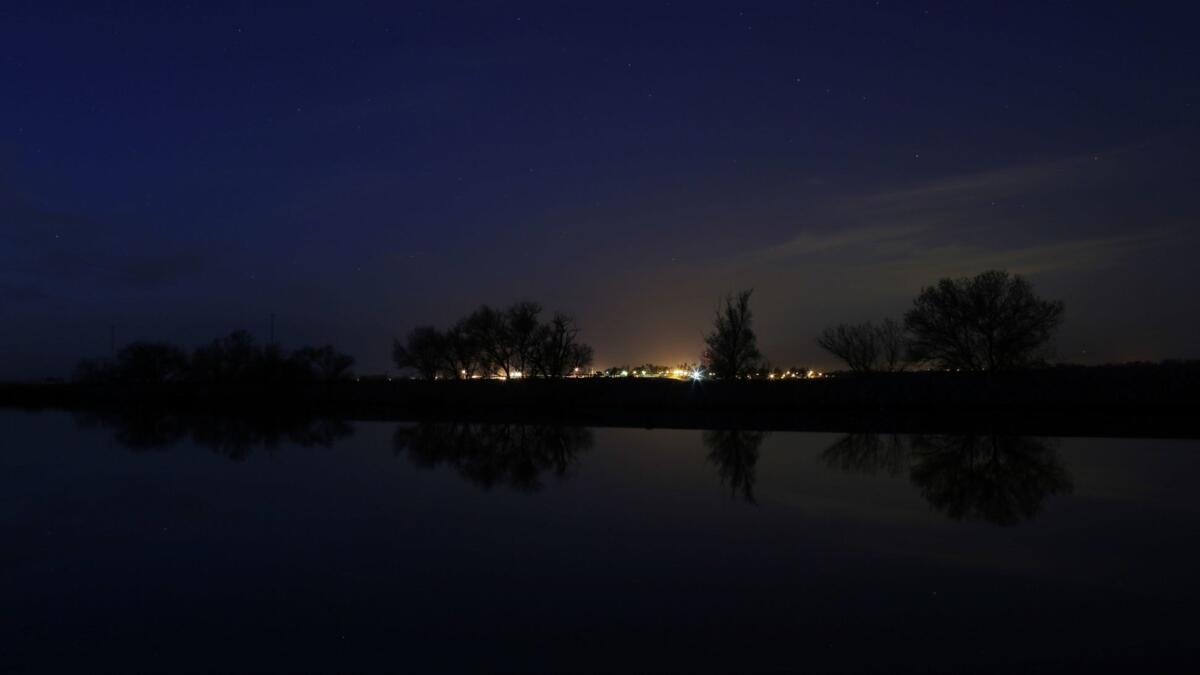California zigzags on ambitious water-delivery project, puts two-tunnel concept back on the table

- Share via
Four days after Southern California’s biggest water agency dropped a plan to pay for most of a major water delivery project, the funding proposal is back on the table.
In agenda materials posted Friday afternoon, the staff of the Metropolitan Water District of Southern California presented two options for the board to vote on Tuesday: Approve $5.2 billion in funding for a single tunnel that would be built in the center of the state’s waterworks, or OK up to $10.8 billion to help finance the construction of two tunnels.
Although the influential MWD staff is recommending that the agency go with the one-tunnel plan because it involves less financial risk, they have continued to say that building the full Sacramento-San Joaquin delta project would provide more overall benefits to California’s water delivery system.
“It’s a close call,” MWD general manager Jeffrey Kightlinger said Friday.
The vote is likely to pit MWD’s two biggest members, the city of Los Angeles and the San Diego County Water Authority, against its third-largest member, the Municipal Water District of Orange County — one of the agencies that pushed to get the two-tunnel proposal back on the agenda.
On Monday, Kightlinger sent a memo to the board saying the agency was backing away from a proposal to have MWD pick up the chunk of twin-tunnel financing that agricultural districts were refusing to shoulder. Kightlinger said he put the option back on the agenda after a number of board members told him they wanted to consider the two-tunnel version.
The zigzag reflects the tortured debate over the delta project, which Gov. Jerry Brown’s administration says is vital to sustaining water deliveries to the San Joaquin Valley and Southern California.
But the crucial question of who pays for the massive project — which is opposed by delta interests and major environmental groups — has been a major stumbling block.
The agricultural and urban districts that get supplies from government projects that pump water from the southern end of the Sacramento-San Joaquin delta are supposed to fund the project, known as California WaterFix. It would cost nearly $17 billion if fully built, and roughly $11 billion for a single tunnel.
Most of the largely urban districts in the State Water Project committed to pay for their share of the twin tunnels. But the primarily agricultural districts in the Central Valley Project said no thanks. That prompted the Brown administration to downsize initial construction to one tunnel, which MWD and other state contractors would pay for.
Overall, annual water deliveries to the state contractors that invested in WaterFix would be roughly the same, whether one or two tunnels were constructed, according to MWD’s analysis. But the staff said the second tunnel would provide other supply benefits by giving managers more flexibility in operating the south delta pumping operations.
Citing that argument, some board members suggested that MWD pick up agriculture’s unfunded share to complete the full project. The move was based on the assumption that the agency would recoup its extra investment by selling tunnel shares to growers after the project was built.
But the agricultural districts haven’t committed to any future purchases, potentially leaving MWD — and Southern California ratepayers — stuck with the bill if the agency moves ahead with both tunnels.
Even the smaller tab for one tunnel has raised concerns in Los Angeles and San Diego County, two areas that are trying to lessen their reliance on imported supplies from MWD.
“We’re concerned because MWD hasn’t locked into what the total cost is going to be and how those payments are going to be apportioned” between fixed charges and water purchases, said Richard Harasick, senior assistant general manager at the Los Angeles Department of Water and Power.
If fixed charges inflate residential bills regardless of how much water homeowners use, that is a disincentive to conserve, he said.
The Los Angeles City Council last month passed a resolution stating that “to avoid having the ratepayers of the City of Los Angeles carry the financial burden for other parts of the state,” it opposed MWD assuming the unfunded share of a second tunnel.
On Friday, the Natural Resources Defense Council sent the MWD chairman a letter urging the board to postpone Tuesday’s vote.
In what could be a preview of legal challenges, the environmental group argued that the board lacked adequate information “to exercise their fiduciary duty in a lawful manner.”
Twitter: @boxall
More to Read
Sign up for Essential California
The most important California stories and recommendations in your inbox every morning.
You may occasionally receive promotional content from the Los Angeles Times.














